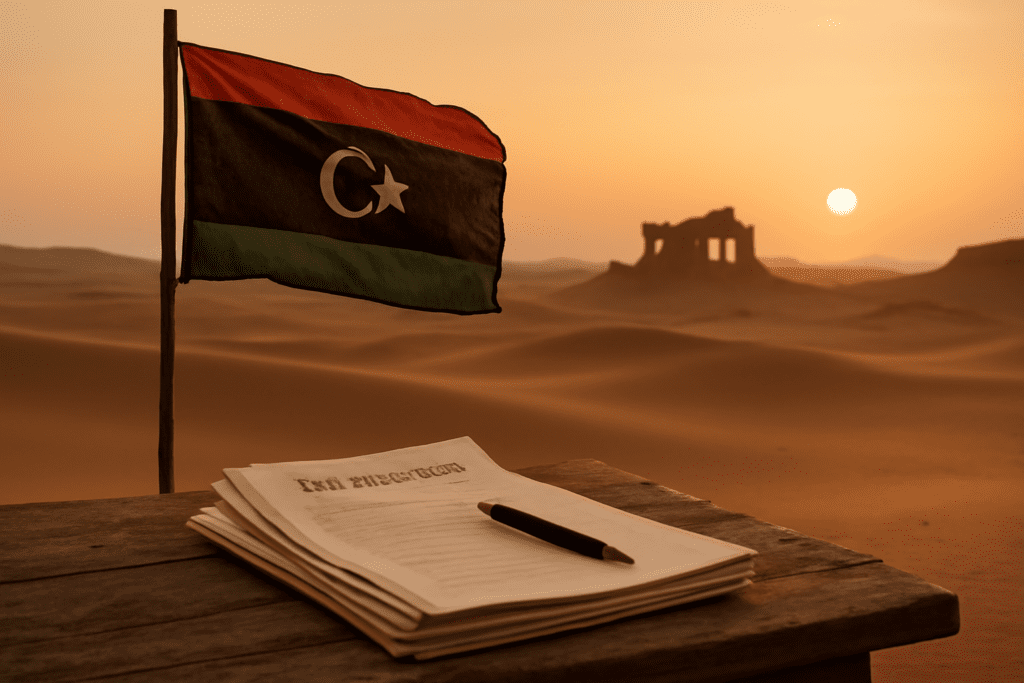A Diplomatic Fault Line: Libya Pushes Back Against U.S. Deportation Plans
In the latest chapter of global migration policy, Libya’s two rival governments have roundly denied any deal with the Trump administration to accept migrants being deported from the United States. Despite leaks from U.S. officials and a charged political climate in Washington, statements from both Tripoli’s Government of National Unity (GNU) and the eastern administration controlled by Khalifa Haftar have called these rumors “completely false and unacceptable.” In a region already strained by years of conflict and humanitarian crisis, the refusal exposes a deep fissure in international migration politics and underscores how U.S. hardline deportation strategies clash with on-the-ground realities in receiving states.
According to a Reuters report, anonymous U.S. officials floated intentions to transfer migrants—potentially on military flights—to Libya. The plan, if executed, would represent a new phase in the Trump administration’s long-standing effort to broker such arrangements with third countries. Yet Libyan authorities insist that no such agreement was ever reached or even discussed.
Khaled Al-Mahjoub, director in Haftar’s Libyan National Army, did not mince words: “Some parallel entities that do not operate under legal legitimacy may be involved in understandings that neither represent the Libyan state nor bind it politically or legally,” making clear that only official channels can speak for the nation. The international community has taken note; similar statements have come from both the GNU and its eastern rival, throwing cold water on any suggestion that Libya will serve as America’s migrant holding pen.
Human Rights at the Crossroads: Lessons from Libya’s Crisis
The notion of sending vulnerable migrants to Libya isn’t just diplomatically fraught—it is, by many humanitarian yardsticks, indefensible. Human Rights Watch and Amnesty International both document harrowing conditions in Libya’s detention centers, where migrants report arbitrary detention, violence, and even torture. Past State Department reports acknowledge unsafe conditions, and U.S. lawmakers have described Libya as a “place of unspeakable suffering” for refugees and asylum seekers.
Beyond that, the Trump administration’s willingness to float Libya as a potential partner—despite these well-known dangers—reveals a disturbing indifference to the human costs of immigration crackdowns. The administration has previously sought similar deals with Guatemala and El Salvador, shifting responsibility for basic human dignity onto countries wracked by their own struggles. Harvard law professor Gerald Neuman observes, “Offshoring migration enforcement to unstable states only encourages more rights abuses, not fewer border crossings.”
So what motivates such proposals? Hardline rhetoric—and optics—hold powerful sway. In an April 30 Cabinet meeting, Secretary of State Marco Rubio invoked outright hostility, reportedly saying, “We want to send you some of the most despicable human beings, will you do this as a favor to us?” The choice of language—vilifying migrants—illustrates an approach more interested in political theater than sustainable solutions. This demonization of migrants as threats, not people, is where policy loses its moral compass.
“Offshoring migration enforcement to unstable states only encourages more rights abuses, not fewer border crossings.” — Harvard Law Professor Gerald Neuman
Legal challenges loom as well. International law prohibits the forced transfer of asylum seekers to places where their rights are at risk, so the Trump administration’s plan—whether bluster or blueprint—would provoke profound ethical and legal scrutiny. In the words of a United Nations special rapporteur, “Sending migrants to Libya likely violates the principle of non-refoulement, the cornerstone of international refugee law.”
Hard Borders, Harder Realities: The Dead End of Conservative Migration Tactics
A closer look reveals that conservative immigration crackdowns have consistently failed to deliver lasting results. Since the early days of the “Remain in Mexico” policy and the notorious migrant family separations, hard-right strategies have generated headlines but little genuine progress. According to a Pew Research Center study from 2023, public confidence in the U.S. immigration system sits at historic lows, particularly among those exposed to policies that focus on deterrence over reform.
Libya’s rejection is more than posturing—it’s a rebuke of American attempts to outsource humanitarian obligations. Both Tripoli and Benghazi have staked out clear lines: “Migrants will not be received through airports and ports secured by the Armed Forces, and that is completely false and we cannot accept it at all,” officials explained this week. Sovereignty remains paramount, and partnering with the U.S. could deepen internal tensions and risk further destabilization in a nation already stretched to the breaking point.
European nations have grappled with similar dilemmas. In 2016, the EU-Turkey deal to stem migration drew fierce backlash as abuses in Turkish camps surfaced. The lesson? Attempts to “manage” migration by shifting responsibility, often to more fragile states, rarely work and frequently produce more suffering. Progressive lawmakers and advocacy groups stress that sustainable immigration policy must begin with “expanding safe, legal pathways and restoring respect for human rights,” in the words of Migration Policy Institute researcher Muzaffar Chishti.
Where does that leave us? When the most vulnerable are treated as bargaining chips, nobody truly wins—not the sending nation, not the receiving one, and certainly not the people in limbo. Effective, ethical immigration reform starts with accountability, shared responsibility, and the courage to put humanity and international law above partisan impulse. In today’s polarized policy arena, that’s a tall order—but public pressure has forced course corrections before, and it can again.

